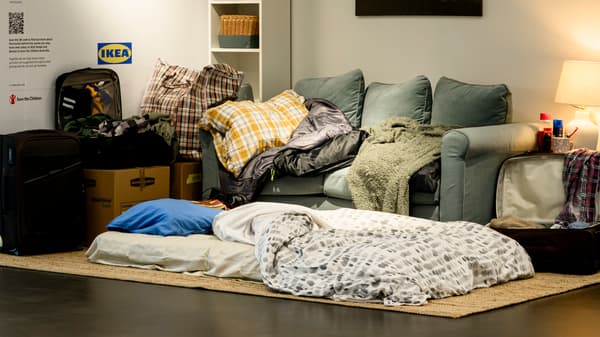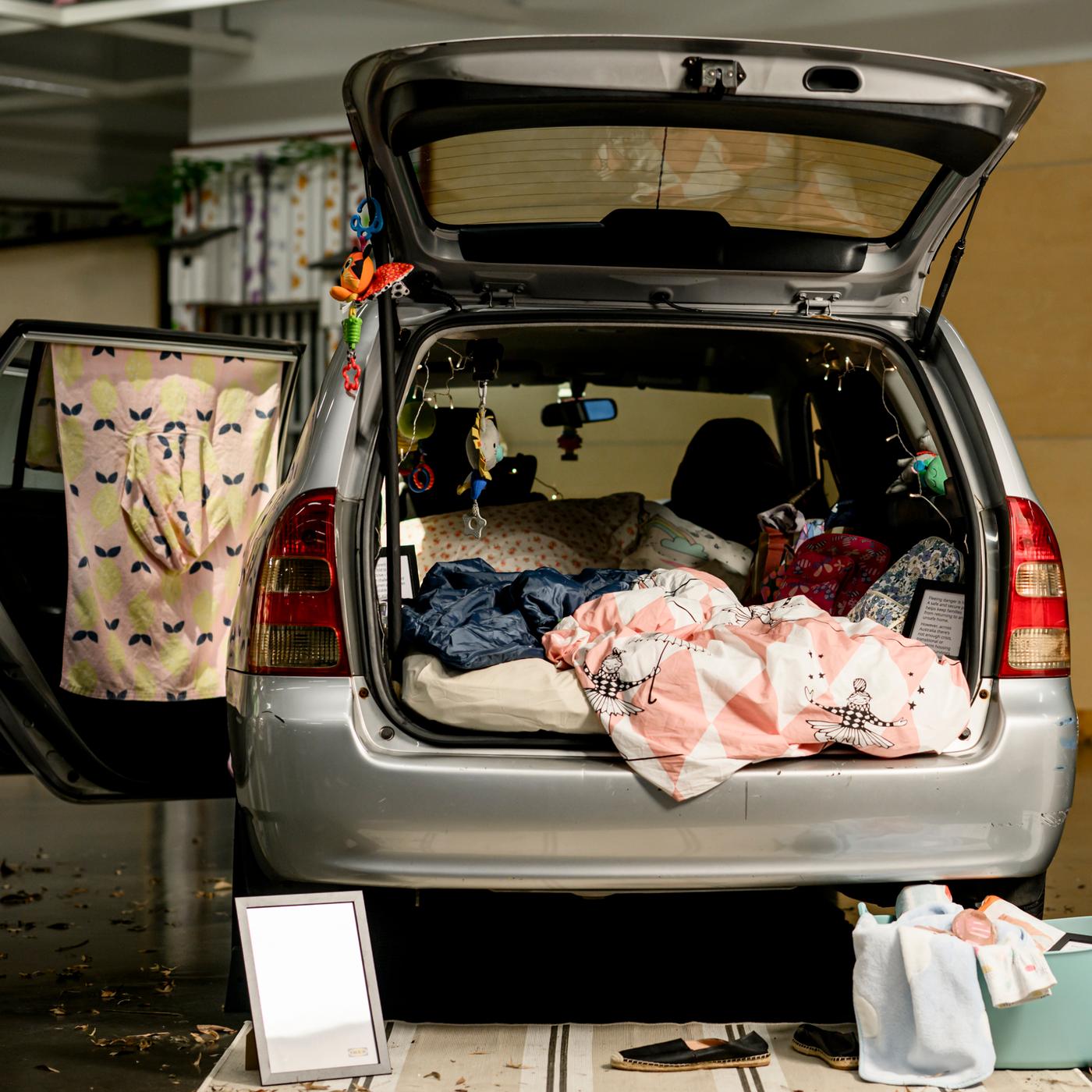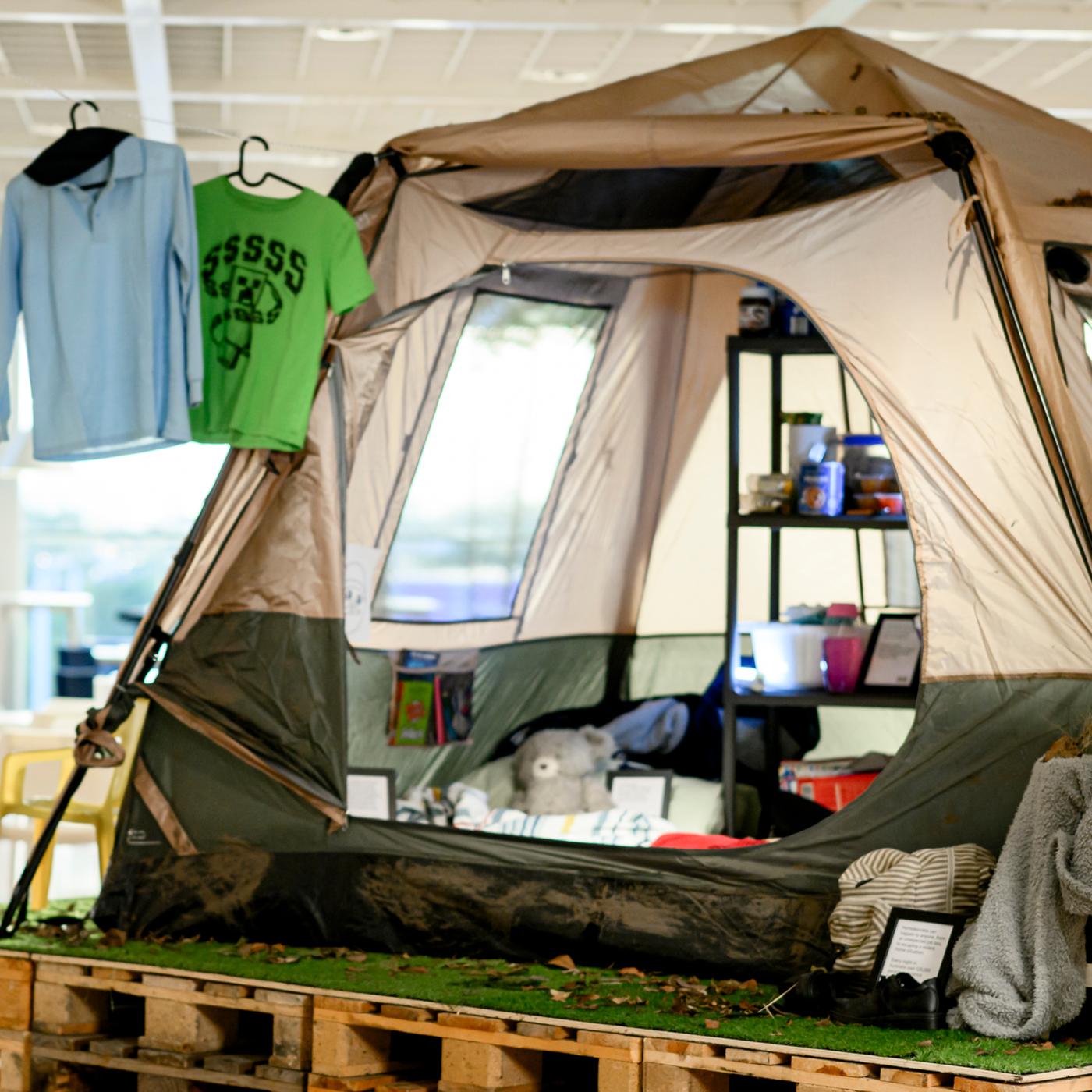Behind the scenes
Amal's story
Domestic and family violence affects around 40% of households with children in Australia.* When leaving a violent home, staying with friends or family is often intended as a temporary solution. Yet many women and children wait months or years for secure accommodation to call home. Amal, her son Ali and beloved dog Milo relied on the generosity of a friend, staying on their couch until a refuge placement could be found. Read Amal's full story below.
This story contains references to domestic and family violence. If you or someone you know is experiencing domestic and family violence or needs support, see support services available here.
Amal's story is represented at the IKEA Tempe store
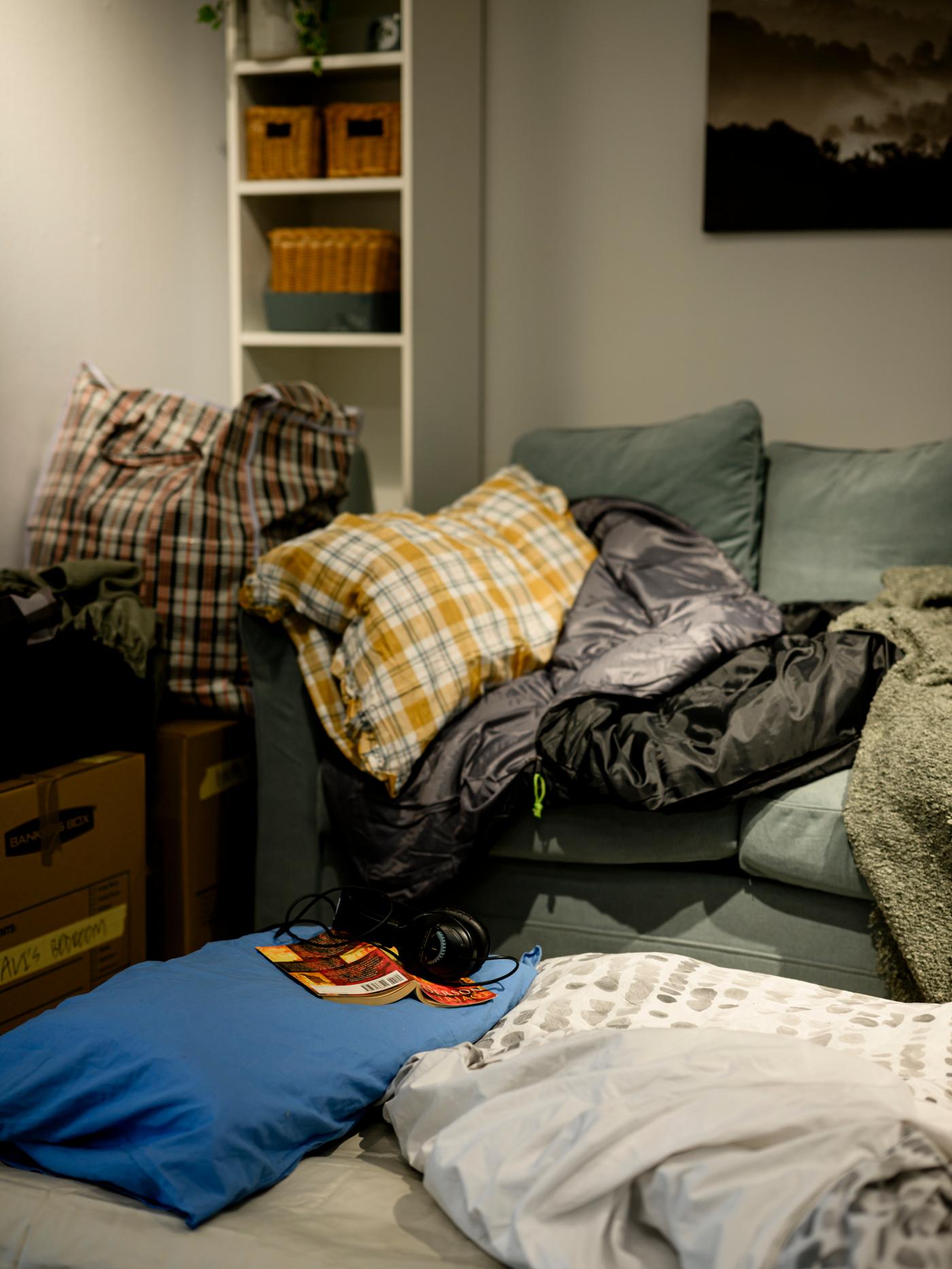
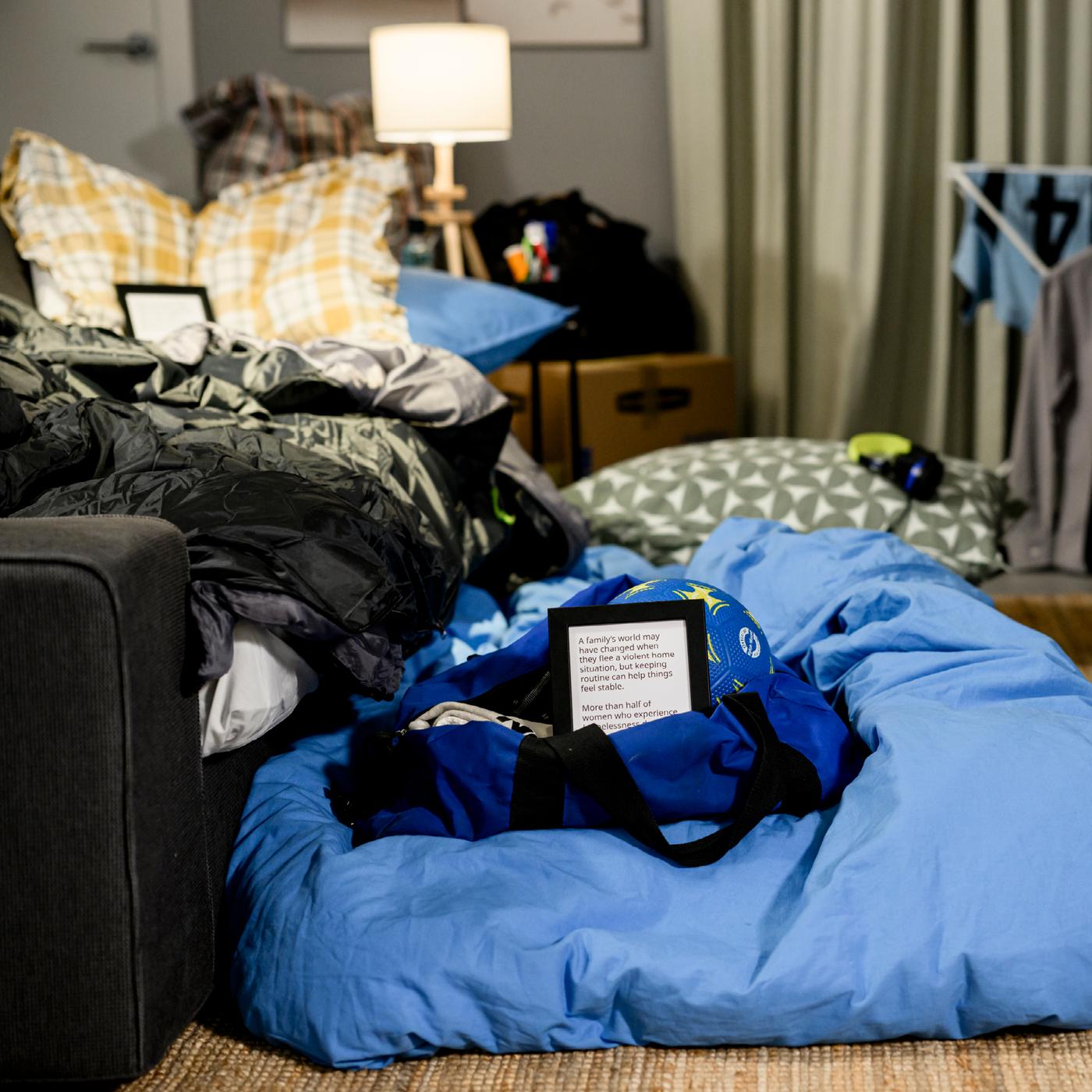
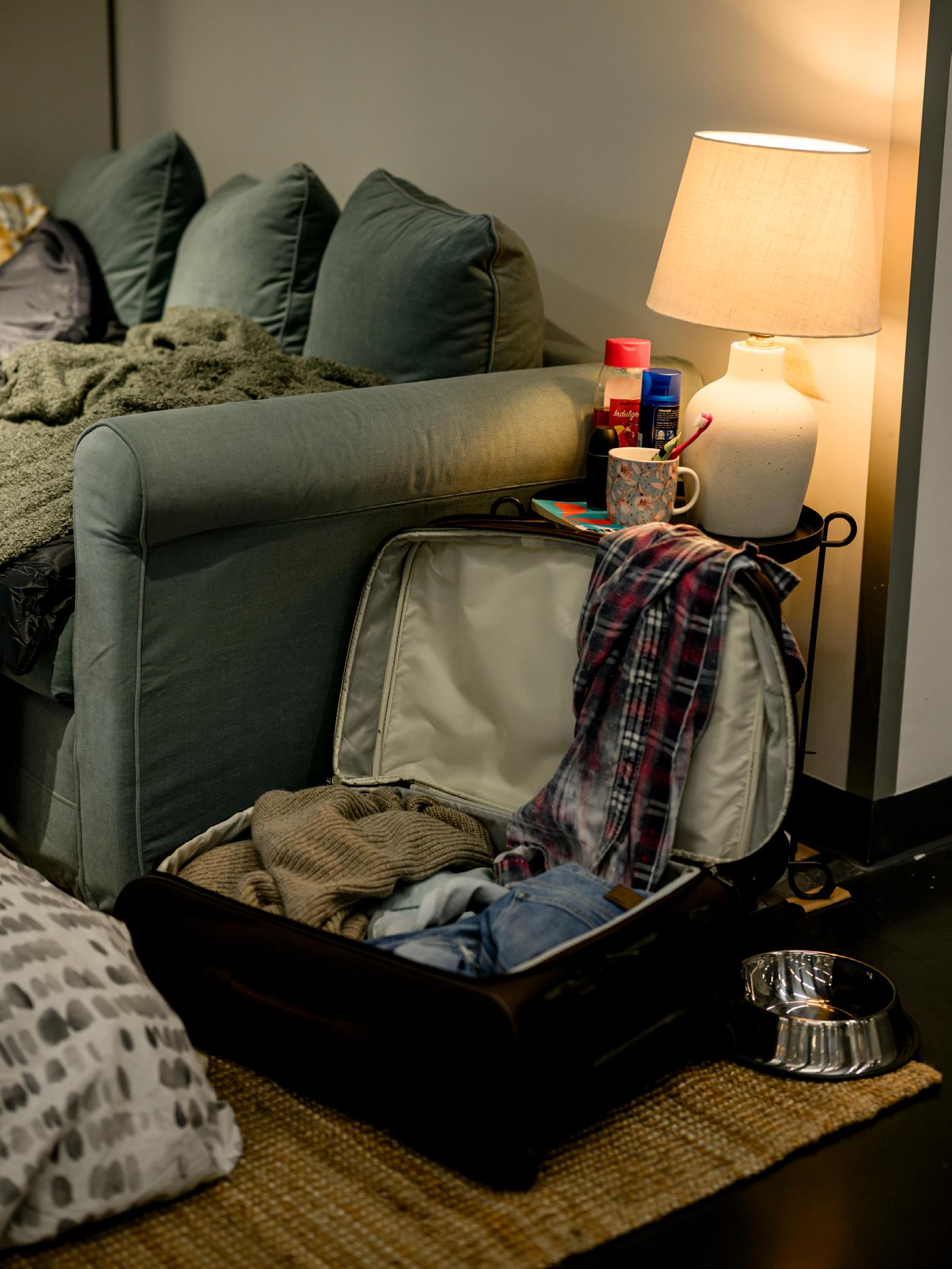
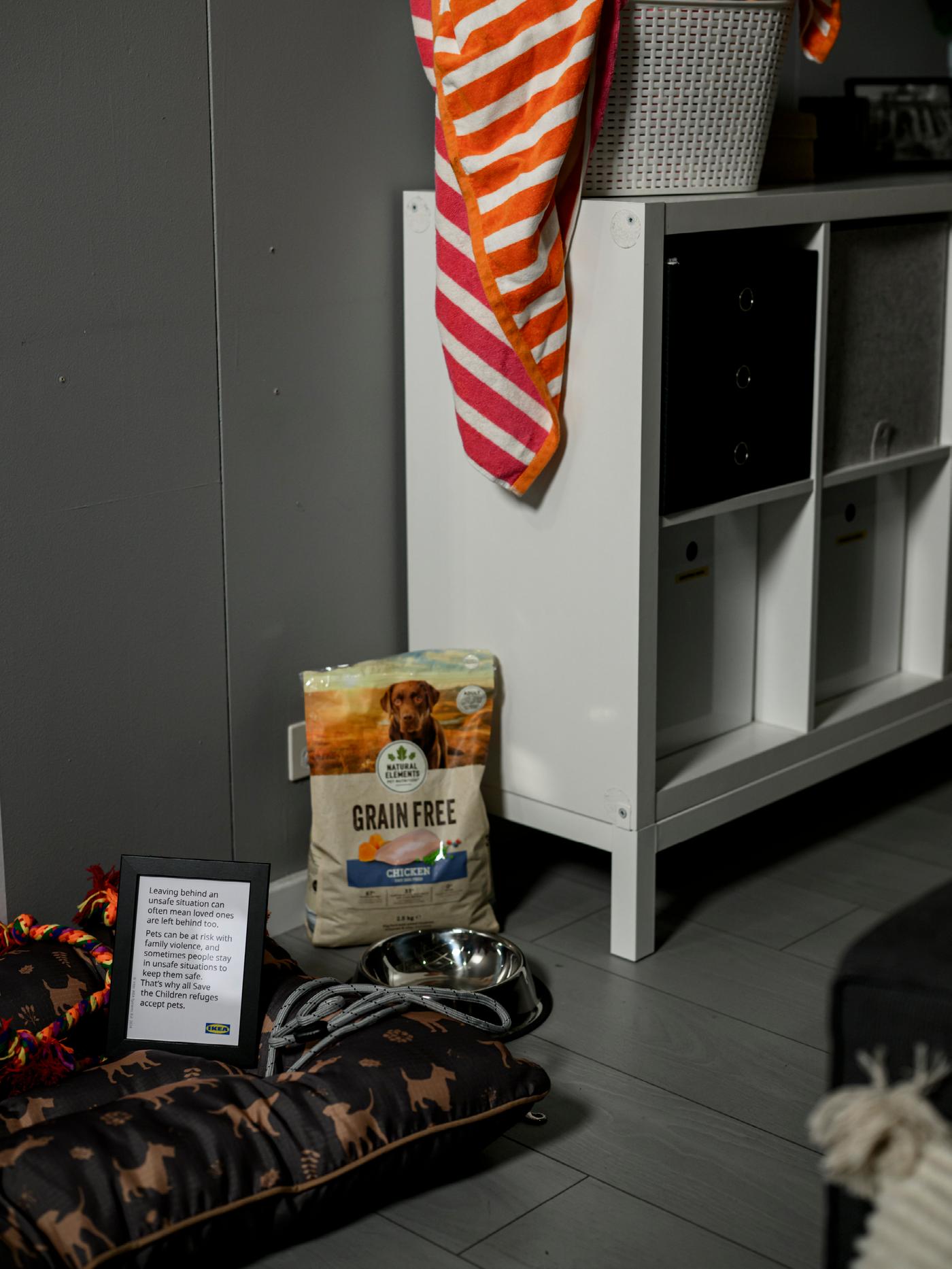
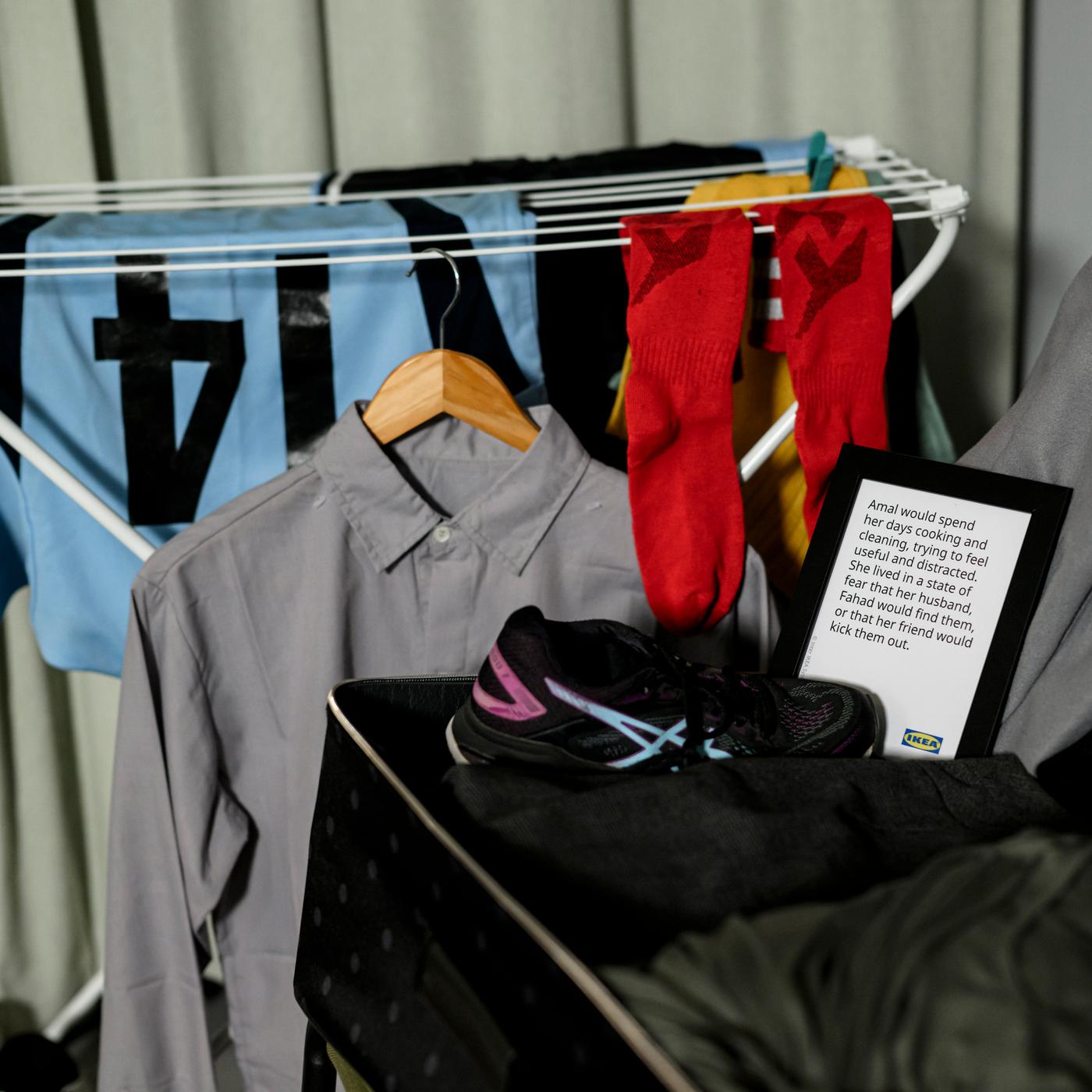
Amal is 40 years old. Her son, Ali, is 16. Amal was married to Fahad for nearly 20 years.
They met at a university party – Fahad was smitten immediately, and he pursued Amal intensely for months before winning her over for a date. Looking back, Amal sees the red flags of ‘love bombing’ – but at the time, it just felt like a whirlwind romance filled with grand gestures and exciting plans for a future together.
Fahad covered controlling behaviour under the guise of a protective new boyfriend, wanting to keep Amal safe. His anger when she spoke to other men was explained away as a passionate jealousy, wanting Amal all to himself. Violence slipped into their relationship quietly. It started with forced affection – a kiss whenever he demanded – and slowly grew to serious and regular assaults. Only ever behind closed doors, never leaving marks anyone could see. Unhappy and unsafe, Amal planned to leave Fahad – until she found out she was pregnant with their son, Ali. With no family in the country, Fahad was her only support.
The years that followed were a painful cycle of love, manipulation and violence. While he was never violent with their son, Fahad’s abuse escalated with Amal. He would be triggered by the smallest thing, followed by apologies and promises to change. He’d enrol in counselling, then drop out after one session. If Amal tried to leave, Fahad would threaten self-harm or to take Ali away from Amal. When they reconciled, he would promise to do better, and she would hope for better.
The night Amal left Fahad, his violence had become so extreme that neighbours called the police. When they arrived, the police spoke to Amal and Ali alone – Amal was ready to diffuse the situation as usual, when Ali turned to her and said “I don’t want you to die”. It was the first time Amal realised how much Ali saw and knew about Fahad’s abuse.
That night, she and Ali left with nothing but the clothes on their back and their beloved dog, Milo. Police explained that Milo wouldn’t be allowed in most refuges or motels – but Amal refused to leave him behind, knowing he would become the target of Fahad’s anger. Instead, they called a friend who welcomed them to stay until they could find something more permanent. Amal and Ali slept on their friend’s couch for a couple of weeks. Amal felt so fortunate to have someone in her life to count on like this, but it was not always easy. They were in a spare room, with one bed – Amal slept on a blow-up mattress on the floor, to make sure Ali could get good rest. But Ali would walk the halls at night, listening in case Fahad was outside – he can still recall the sound of the floorboards squeaking as he paced back and forth.
Sleepless nights meant Ali was always exhausted, and his schoolwork suffered. Amal would spend her days cooking and cleaning, trying to feel useful and distracted. She never rested. She lived in a state of fear that Fahad would find them, or that her friend would kick them out.
Thankfully, a Save the Children Australia refuge placement opened up that would accept Milo. Arriving at the refuge exhausted, overwhelmed and scared, Amal and Ali slept for nearly 15 hours. When they woke up, they found the kitchen stocked with Ali’s favourite foods, and dog treats for Milo. Amal picked up the television remote, turned the TV on and changed the channel over and over again – she told the refuge worker she hadn’t been allowed to change the channel in years.
Over the three months of their refuge stay, the refuge staff supported Amal and Ali separately and together. They held space for Ali – giving him time and space to talk through his confusion, fear, anger and sadness. Aside from sharing worries with mates, this was the first time Ali had a safe space to be heard, to have his feelings validated, and to understand why his home was not a safe place. For Amal, the refuge was a place to rest.
After years of living in survival mode, constantly vigilant and protective of herself and Ali, it took a long time to begin feeling physically safe. Fahad’s abuse didn’t end with their escape – once Amal and Ali left the refuge and settled into new housing, Fahad breached intervention orders multiple times and continues his attempts to harass and manipulate his family. But Amal now understands his behaviour better, trusts herself more and is working to rebuild a life for herself and Ali. She’s working with a career coach to get back to work. Ali has settled into a new school, and is getting specialised support just for him. Amal has friends who understand and can support her on her journey. And she changes the TV channel whenever she wants.
Do you need support?
*Source: ACMS 2023
